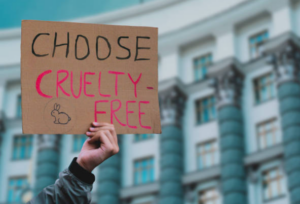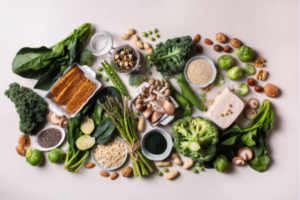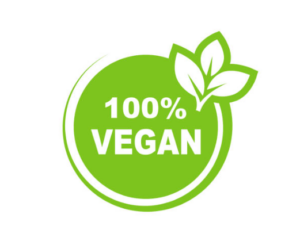Transforming Your Lifestyle

In today’s rapidly evolving world, ethical and conscientious living isn’t merely a choice; it has emerged as a profound shift in our collective consciousness. We’re witnessing a global awakening where values such as compassion, responsibility, and sustainability are no longer mere buzzwords but guiding principles that shape our lifestyles. This transformation extends far beyond the realm of fleeting trends; it signifies a fundamental reevaluation of how we interact with our world and all the beings that share it.
Our journey, as detailed in this comprehensive guide, is an exploration of these evolving principles across three closely intertwined facets of our daily existence: food, fashion, and beauty. In the following pages, we’ll unveil a treasure trove of ethical alternatives that enable us to live with a deeper sense of purpose. These choices empower us to make a positive impact on the world without sacrificing the pleasure, style, and allure that make life truly vibrant.
1. Food: Nourishing Body and Soul
Our journey commences at the very core of nourishment: food. It’s not just the fuel for our bodies but a profound expression of culture, tradition, and the artistry of culinary craft. Food binds us to our heritage, connects us with our communities, and, most importantly, sustains our bodies and souls. In this section, we embark on a journey through the world of ethical eating, where every bite is a statement of compassion.
a. Cruelty-Free Diets: Vegan and Vegetarian Options
The journey toward an animal cruelty-free lifestyle often begins with dietary choices. For many, adopting a vegan or vegetarian diet is the initial step on this transformative path. These diets eliminate the consumption of animal products, such as meat, dairy, and eggs, and instead prioritize nourishment from plant-based alternatives. A vegan diet, in particular, stands as a testament to ethical living, as it is entirely devoid of animal-derived ingredients and offers numerous benefits for both personal health and the welfare of animals.
Transitioning to a vegan or vegetarian diet doesn’t mean forsaking the pleasures of a diverse culinary landscape. On the contrary, it introduces us to a world of vibrant flavors and innovative recipes, where vegetables, legumes, grains, and fruits take center stage. The plate becomes a canvas for creativity, and plant-based cuisine emerges as an art form that celebrates both taste and ethics.
b. Plant-Based Protein: A Sustainable Alternative
One common concern that often arises when contemplating a vegan or vegetarian diet is protein intake. Protein is essential for building and repairing tissues, and for maintaining overall health. Fortunately, cruelty-free eating provides ample solutions to this nutritional need.
Plant-based protein sources, such as legumes (think hearty lentils and chickpeas), tofu (a versatile staple in many cuisines), tempeh (a fermented soybean product rich in protein), and quinoa (a complete protein grain), offer a diverse range of options. These sources not only provide the protein required for optimal health but also align with ethical values by reducing reliance on animal agriculture. In doing so, they contribute significantly to a more sustainable and compassionate food system.
c. Ethical Eating: Mindful Consumption of Animal Products
While vegan and vegetarian diets are inherently cruelty-free, some individuals choose a more nuanced approach to their dietary choices. This approach focuses on the ethical sourcing of animal products, emphasizing responsible and humane farming practices that prioritize the welfare of animals.
Selecting cage-free eggs, opting for grass-fed beef, and choosing organic dairy products are examples of ethical choices within the realm of animal-derived foods. By endorsing these practices, individuals actively support humane animal husbandry and encourage the industry to adopt more compassionate standards.
d. Exploring the World of Cruelty-Free Cuisine
Embracing an animal cruelty-free lifestyle doesn’t mean sacrificing the joys of a diverse and flavorsome culinary world. In fact, the realm of cruelty-free cuisine is brimming with exciting tastes and innovative recipes that inspire culinary adventurers.
From the tantalizing spices of Indian cuisine to the comforting embrace of Italian pasta dishes, cruelty-free options abound. The vibrant colors of Thai curries, the umami-rich flavors of Japanese sushi rolls, and the hearty goodness of Mexican tacos are just a few examples of how diverse and satisfying cruelty-free cuisine can be. Exploring various culinary traditions can open doors to a world of delicious and ethical food choices.
In essence, ethical eating invites us to redefine our relationship with food. It encourages us to savor every bite with the knowledge that our choices have the power to transform our own well-being and the world around us. Through conscious consumption, we nourish not only our bodies but also our souls, recognizing that every meal is an opportunity to express our values and commitment to a more compassionate world.

2. Fashion: Dressing with Compassion
The next leg of our journey beckons us into the captivating world of fashion, where self-expression and style seamlessly converge. Yet, the fashion industry’s dark underbelly, epitomized by the rapid cycles of fast fashion, has cast a long shadow over its allure. In the chapters that follow, we’ll navigate the transformative journey towards ethical fashion, where every stitch is a conscious choice. From sustainable materials that embrace innovation to the allure of vintage treasures that tell stories of the past, we’ll discover how to express our unique style while fostering a more responsible and, indeed, more beautiful world.
a. From Fast Fashion to Ethical Apparel
Fast fashion, characterized by cheap and disposable clothing, has long been criticized for its detrimental impact on the environment and exploitative labor practices. Ethical fashion, on the other hand, promotes sustainable practices, fair wages, and cruelty-free materials. Transitioning to ethical apparel means making informed choices about where and how your clothing is made.
b. Animal-Free Materials: The Future of Fashion
Animal cruelty-free fashion extends to materials as well. Innovations in sustainable and cruelty-free materials, such as faux leather, plant-based textiles, and recycled fabrics, have paved the way for a more compassionate fashion industry. These materials offer stylish and guilt-free alternatives to traditional animal-derived options.
c. Thrifting and Sustainable Shopping: Redefining Style
Thrifting and sustainable shopping are integral components of ethical fashion. Secondhand clothing reduces waste and minimizes the demand for new production. By opting for pre-loved pieces and supporting eco-conscious brands, you can redefine your style while reducing your fashion footprint.
d. Supporting Ethical Fashion Brands
Many fashion brands have embraced ethical and cruelty-free practices, prioritizing transparency and sustainability. Supporting these brands not only promotes ethical fashion but also encourages the broader industry to adopt more responsible and compassionate approaches to design and production.

3. Beauty: Enhancing Your Natural Beauty Without Harm
Our third destination transports us into the enchanting universe of beauty, where we enhance our natural allure without causing harm to animals or our fragile planet. This leg of the journey is a voyage through the ever-expanding realm of ethical beauty. Here, we’ll uncover the transformative power of cruelty-free cosmetics, products that eschew animal testing while elevating our appearance. We’ll explore skincare that not only nourishes but also honors the goodness of nature and our planet. In this section, we’ll delve into the realm of sustainable packaging, emphasizing the pivotal role it plays in reducing our environmental footprint. We’ll also savor the joy of crafting our very own cruelty-free beauty products, turning our homes into havens of conscious self-care.
a. Cruelty-Free Cosmetics: Makeup with a Conscience
Beauty enthusiasts can take a stand against animal testing by choosing cruelty-free cosmetics. Numerous makeup brands have pledged to abstain from animal testing, ensuring that their products are safe and ethical. From lipsticks to eyeshadows, cruelty-free makeup offers a wide range of options for enhancing your natural beauty.
b. Ethical Skincare: Nurturing Your Skin with Compassion
Ethical skincare goes beyond cruelty-free testing; it also encompasses ingredients and sustainability. Opting for skincare products made from natural and cruelty-free ingredients can enhance your skin’s health while aligning with your ethical values. Many ethical skincare brands are committed to reducing their environmental impact through sustainable packaging and practices.
c. Sustainable Packaging: Reducing Beauty’s Environmental Footprint
The beauty industry is gradually shifting toward eco-conscious packaging. Sustainable packaging options, such as recyclable materials, biodegradable containers, and refillable products, minimize waste and reduce the environmental impact of your beauty routine.
d. DIY Beauty: Crafting Your Cruelty-Free Products
For those who enjoy a hands-on approach to beauty, DIY cosmetics and skincare offer a creative outlet. Crafting your cruelty-free products allows you to control ingredients, minimize waste, and experiment with formulations tailored to your unique needs.
Embracing an animal cruelty-free lifestyle has a direct and profound impact on the welfare of animals. By choosing cruelty-free options in food, fashion, and beauty, individuals contribute to the reduction of animal suffering and the promotion of more humane practices.
Ethical choices extend beyond animal welfare; they also benefit the environment. Plant-based diets have a significantly lower carbon footprint than diets centered around animal agriculture. Additionally, ethical fashion and sustainable beauty practices reduce the environmental toll of conventional production and consumption.

Living an animal cruelty-free lifestyle is a journey that evolves over time. It’s essential to find a balance that aligns with your values and fulfills your needs. Whether you choose to adopt a vegan diet, support ethical fashion brands, or embrace cruelty-free beauty, each step contributes to a more compassionate and sustainable world.
In closing, an animal cruelty-free lifestyle offers a pathway to ethical living that resonates with your values and principles. By making mindful choices in food, fashion, and beauty, you can contribute to positive change, protect animals, and nurture the planet we all call home. Embrace the power of ethical choices, and let your journey towards a cruelty-free lifestyle be a testament to the beauty of compassion and responsibility.




